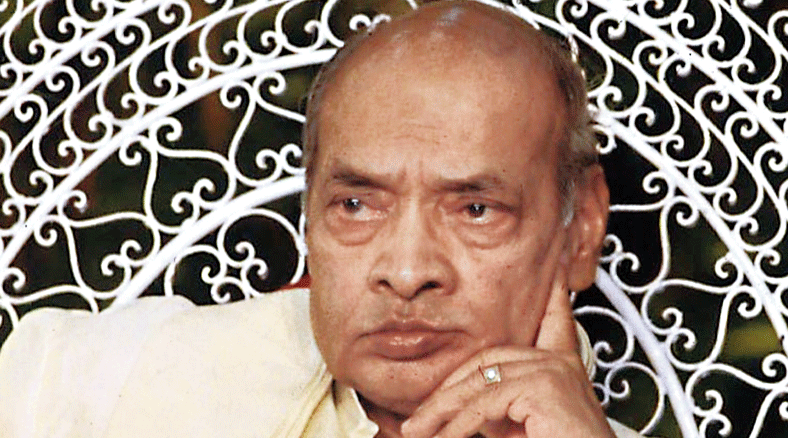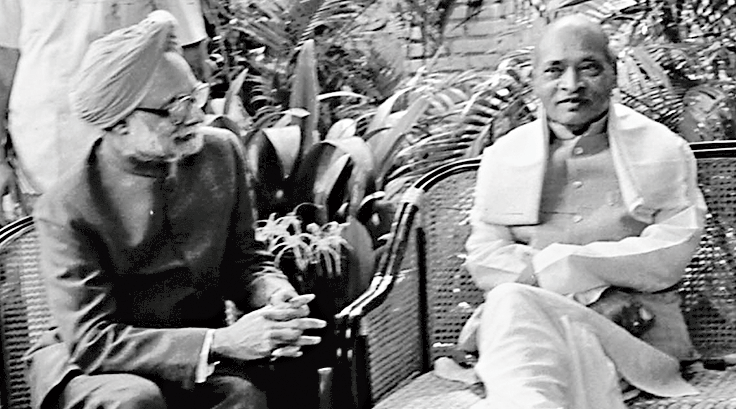Manmohan Singh on Friday described P.V. Narasimha Rao as “the father of economic reforms in India”, a title often bestowed on the former finance minister himself for presenting the path-breaking budget on this day — July 24 — in 1991.
Inaugurating the yearlong birth centenary celebrations of Rao, who had been Prime Minister when the economic reforms were launched, Singh said: “Economic reforms were preceded by a push in that direction when Rajiv Gandhi was the Prime Minister.”
Singh said: “Before that, Indira Gandhi herself was able to grasp the importance of reorienting our economic policies. But real tough decisions had to be urgently taken in 1991 as we were faced with a foreign exchange crisis, with foreign exchange reserves down to about two weeks’ imports, bringing the nation to the edge of a precipice.”
Singh, addressing via videoconference an event organised by the Telangana Congress, added: “But then politically it was a big question if one could take hard decisions to meet the challenging situation. It was a precariously placed minority government, which was dependent on outside support for stability. Yet Narasimha Raoji was able to carry everyone along, convincing them with his conviction. Enjoying his confidence, I went about my job to carry forward his vision.”
Demonstrating remarkable humility in sharing the glory with his boss in an era of monopolising credit, Singh said: “Victor Hugo had once said that no power on earth can stop an idea whose time has come — India’s emergence as a major economic power was one such idea. There was an arduous journey ahead but it was time to let the whole world know loud and clear that India was wide awake. The rest is history. Looking back, Rao can truly be called the father of economic reforms in India.”

PV Narasimha Rao File picture
Recalling the occasion when he presented his first budget on this day in 1991, Singh said: “It was a budget that changed India in many ways. It ushered in economic reforms and liberalisation. It was a hard choice and a bold decision and it was possible because Prime Minister Rao gave me the freedom to roll out things, after he fully understood what was ailing India’s economy at that time. On this day, while inaugurating his birth centenary celebrations, I pay my humble respects to the man who had the vision and the courage to push these reforms.”
The Telangana government, headed by TRS leader K. Chandrashekar Rao, had taken the lead in celebrating Rao’s birth centenary by accusing the Congress of neglecting the great reformer.
Friday’s programme was also attended by former Congress leader and former President Pranab Mukherjee and senior leaders P. Chidambaram and Jairam Ramesh. Sonia Gandhi and Rahul Gandhi sent their tributes to the former Prime Minister through letters.
Mukherjee not only hailed Rao for boldly opting for reforms but also departing from tradition and choosing an economist rather than a politician to be his finance minister, calling it an act of rare courage and vision.
Sonia described Rao as “scholarly and erudite” and hailed him for his bold leadership that brought about an economic transformation. She said the Congress took pride in his achievements.
Rahul, in his message, recalled Rao’s contribution to shaping modern India, underscoring that both Rao and Singh had played pivotal roles in ushering in liberalisation.
Rahul took care to stress Rao’s commitment to the Congress, rising to the post of Prime Minister and party president after joining the organisation as a teenager. This may have been a subtle message to the impatient young leaders who are betraying the party to fulfil their ambitions.










